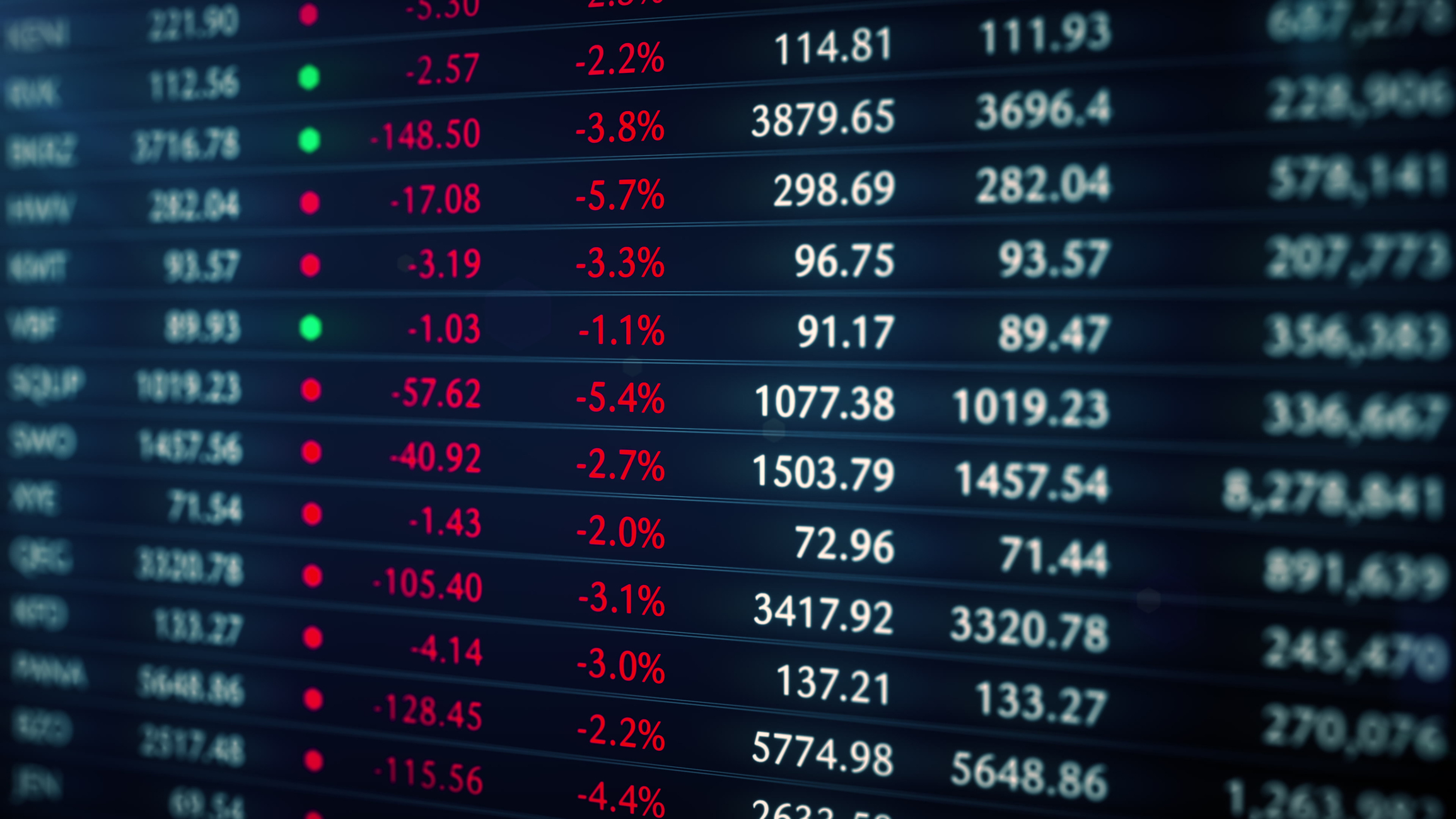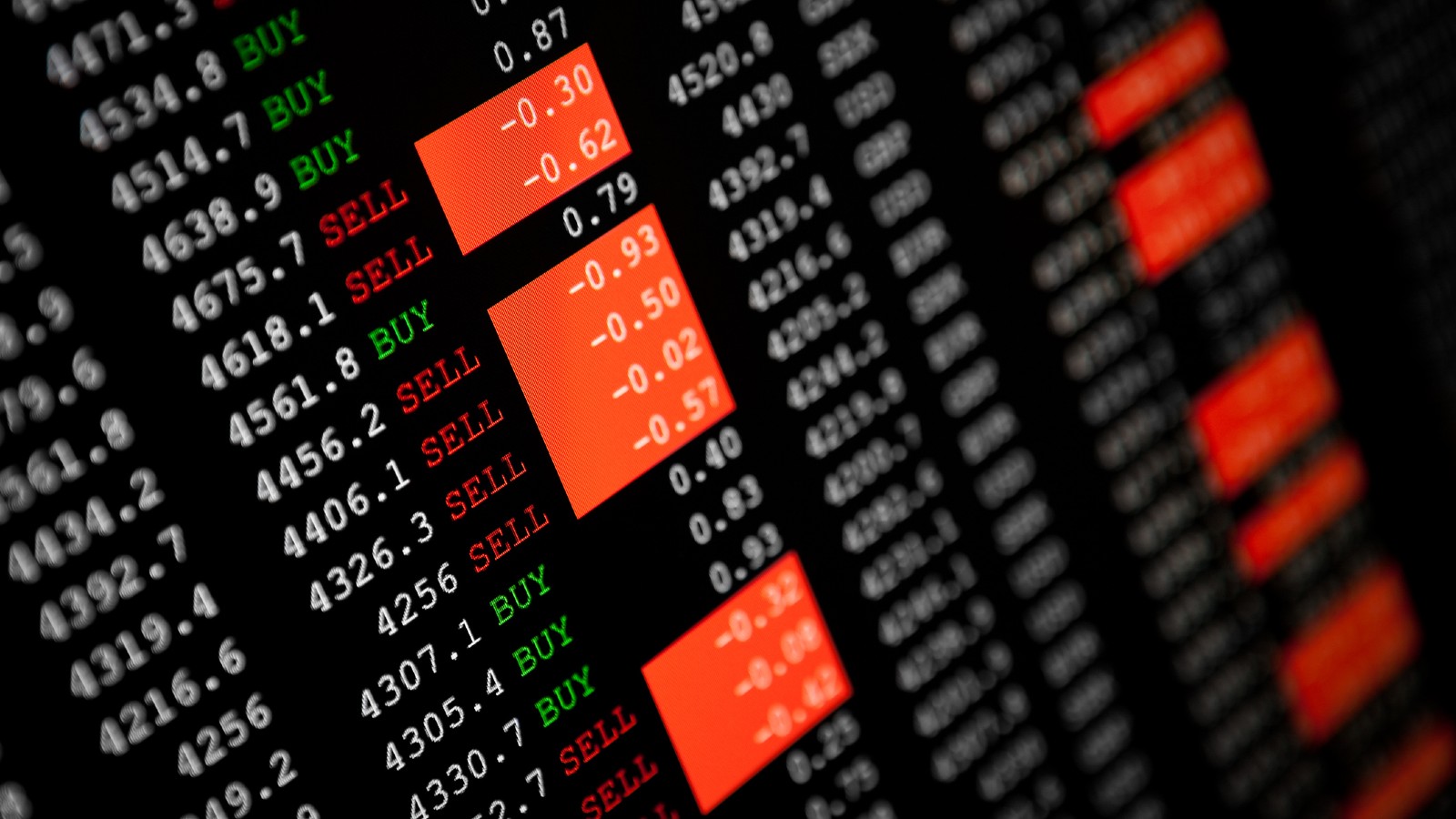Buy Commodity Stocks
Diversifying your portfolio with commodities is a smart move, but buying stocks that are tied to them may be better.

Profit and prosper with the best of Kiplinger's advice on investing, taxes, retirement, personal finance and much more. Delivered daily. Enter your email in the box and click Sign Me Up.
You are now subscribed
Your newsletter sign-up was successful
Want to add more newsletters?

Delivered daily
Kiplinger Today
Profit and prosper with the best of Kiplinger's advice on investing, taxes, retirement, personal finance and much more delivered daily. Smart money moves start here.

Sent five days a week
Kiplinger A Step Ahead
Get practical help to make better financial decisions in your everyday life, from spending to savings on top deals.

Delivered daily
Kiplinger Closing Bell
Get today's biggest financial and investing headlines delivered to your inbox every day the U.S. stock market is open.

Sent twice a week
Kiplinger Adviser Intel
Financial pros across the country share best practices and fresh tactics to preserve and grow your wealth.

Delivered weekly
Kiplinger Tax Tips
Trim your federal and state tax bills with practical tax-planning and tax-cutting strategies.

Sent twice a week
Kiplinger Retirement Tips
Your twice-a-week guide to planning and enjoying a financially secure and richly rewarding retirement

Sent bimonthly.
Kiplinger Adviser Angle
Insights for advisers, wealth managers and other financial professionals.

Sent twice a week
Kiplinger Investing Weekly
Your twice-a-week roundup of promising stocks, funds, companies and industries you should consider, ones you should avoid, and why.

Sent weekly for six weeks
Kiplinger Invest for Retirement
Your step-by-step six-part series on how to invest for retirement, from devising a successful strategy to exactly which investments to choose.
Commodity investing is suddenly all the rage. And no wonder. Demand for energy, metals, food and all sorts of other staples is booming as half the world -- China, India and other developing nations -- enters the ranks of the prosperous. In 2010, the price of oil rose 15%; gold was up 30%; corn, 52%; cotton, 89%.
Meanwhile, the United States, like other developed countries, has assumed huge amounts of debt since the 2008-09 financial crisis. Inflation -- that is, a decline in the purchasing power of the dollar -- seems inevitable. And when the value of a currency falls, then, by definition, the value of things bought with that currency rises.
Piece of cake
Not only do commodities seem compelling, it is easier than ever for rank-and-file investors to buy them. Once viewed as exotic investments that were purchased with high commissions and a lot of borrowed money (increasing risk), commodities today are packaged in easy-to-buy funds. For instance, with a keystroke, you can buy or sell iPath Dow Jones-UBS Commodity Index Total Return ETN (symbol DJP), an exchange-traded note with annual expenses of just 0.75% that tracks the index that appears in its name.
From just $107.88 $24.99 for Kiplinger Personal Finance
Become a smarter, better informed investor. Subscribe from just $107.88 $24.99, plus get up to 4 Special Issues

Sign up for Kiplinger’s Free Newsletters
Profit and prosper with the best of expert advice on investing, taxes, retirement, personal finance and more - straight to your e-mail.
Profit and prosper with the best of expert advice - straight to your e-mail.
But not so fast. Asian prosperity does not guarantee that commodity prices will rise as high as redwood trees. Ultimately, prices are determined by supply and demand, and as demand rises, businesses make investments that increase supply. Firms explore new oil fields or open new mines or find synthetic substitutes (think rubber). Yes, there are constraints -- some of them from environmental regulation -- but the notion that over the long term natural resources will become severely limited is as flawed as the contention of Thomas Malthus in the early 19th century that population would outstrip food supply.
Consider corn, which soared to about $5.25 per bushel at the end of 2010, up from about $1.50 at the end of 1970. Looks impressive, but the compound annual growth rate is only about 3% -- roughly the same as the rate of inflation. By contrast, despite its poor record of the past decade, the Dow Jones industrial average has increased by a factor of 13 since 1970, and that doesn't count dividends.
Because commodities are things, you shouldn't expect their prices to increase at a rate much greater than inflation over the long term. The recent increase in the prices of many commodities may simply be a function of short-term speculation -- much like what occurred in housing (another highly leveraged asset) before the roof caved in a few years back.
But what if we're on the verge of a new era of high inflation caused by all that debt and the currency-printing that has accompanied it? In that case, wouldn't commodity prices soar? Don't be so sure. Inflation would bring a jump in interest rates, so borrowing costs to buy gold and other commodities would rise; that would discourage purchases and maybe drive down prices. If you are worried about inflation, then buy protection through Treasury inflation-protected securities, whose returns rise directly with increases in consumer prices.
It's true that new financial products make commodities more accessible to retail investors. Exchange-traded funds and notes are much more sensible than futures contracts, which are promises to buy a specific amount of something on a specific date, purchased with a tiny amount of equity and a huge amount of debt.
Still, a commodity index should not be confused with a stock index. Although it's relatively easy to construct an index for a basket of stocks (focusing on, say, large companies, tech companies and so on), experts disagree on how to represent the commodity universe, which includes everything from coffee to crude oil.
The performance of three major exchange-traded products that track commodities diverged wildly last year because of differences in their holdings. The best performer, the iPath ETN, returned 16.6% in 2010; next came PowerShares DB Commodity Index Tracking (DBC), which gained 11.9%; bringing up the rear was iShares S&P GSCI Commodity-Indexed Trust (GSG), which returned just 7.8%. The index tracked by the iPath ETN has 27% of its assets in energy and 14% in precious metals. By contrast, the iShares product, which is geared to a Goldman Sachs index, has 66% of its assets in energy commodities and 3% in precious metals.
Probably the best reason to invest in commodities is that they have a history of being uncorrelated with stocks and bonds. When asset prices move out of sync with one another, the returns for your total portfolio are smoother.
A study by Rydex SGI compared the price movements of asset classes from the start of 2000 to the start of 2010. A correlation of 1.0 means that assets move exactly in tandem, while 0.0 means no correlation at all. The study found that international stocks have a correlation of 0.88 with U.S. stocks, indicating that their movements are tightly linked. But the connection between commodities and U.S. stocks was just 0.2.
It's hard to argue with the data. But in 2008, when large-company stocks suffered their worst loss since the Great Depression, with Standard & Poor's 500-stock index plunging 37%, commodities did almost as poorly. The PowerShares fund dropped 32%, and the others lost similar amounts. Perhaps 2008 was an outlier. Although the overall lack of correlation is encouraging, commodity funds just haven't been around long enough to provide confidence that they will balance your stock holdings in bad times.
Rather than buying commodities directly or investing in commodity funds, a better move is to buy stocks that are tied to commodities. Energy is the best example. If you believe in the case for booming growth in developing markets or for inflation, then buy shares of large companies that explore for petroleum, refine it and sell it. For example, the Value Line Investment Survey gives high ratings to ConocoPhillips (COP). At a price of $67, the stock trades at 10 times the average analyst earnings estimate for 2011 and yields 3.3% (all stock prices and related data are through January 7). And Value Line gives Conoco a top financial-strength rating of A++.
For minerals, consider Freeport-McMoRan Copper & Gold (FCX), with mining interests in North and South America and Africa. The company's net profit has jumped from $80 million to $3.5 billion in a decade, but, at $117, it still trades at only 11 times estimated earnings.
If you want to speculate in a commodity that has not zoomed in price, look at forest products. While lumber has bounced back from its lows of last summer, it's still 32% below its 2004 high. International Paper (IP), which owns 200,000 acres of woodlands in the U.S. and 250,000 in Brazil, has suffered stagnant revenues (thanks to the real estate collapse), but it may be poised for a significant rebound (see Why Timberland REITs Are a Buy). Similarly, I am fond of companies that explore for and produce natural gas, such as Chesapeake Energy (CHK). Its shares, at $27, are still down by nearly two-thirds from their 2008 high. (Natural gas, by the way, is suffering from a supply glut as new technology has boosted production.)
If you insist on buying commodities as if they were a sector, then choose a fund like Fidelity Select Natural Resources (FNARX). It has about three-fourths of its assets in energy stocks, and it holds a strong dose of precious-metals stocks, such as Barrick Gold (ABX). The Fidelity fund had a great decade, returning an annualized 11.3% for the ten years that ended December 31 (compared with 1.4% annualized for the S&P 500). Not surprising for a sector fund, the ride was bumpy, with the fund losing 52.4% in 2008.
The best natural-resources firms allow you to invest not just in things but also in brains. I would much rather entrust my capital to the human imagination -- to our ability to find new processes, management techniques or arrangements of molecules -- than to stuff in the ground.
James K. Glassman is executive director of the George W. Bush Institute in Dallas. His new book, Safety Net, was published in February by Crown.
Profit and prosper with the best of Kiplinger's advice on investing, taxes, retirement, personal finance and much more. Delivered daily. Enter your email in the box and click Sign Me Up.

-
 Dow Adds 1,206 Points to Top 50,000: Stock Market Today
Dow Adds 1,206 Points to Top 50,000: Stock Market TodayThe S&P 500 and Nasdaq also had strong finishes to a volatile week, with beaten-down tech stocks outperforming.
-
 Ask the Tax Editor: Federal Income Tax Deductions
Ask the Tax Editor: Federal Income Tax DeductionsAsk the Editor In this week's Ask the Editor Q&A, Joy Taylor answers questions on federal income tax deductions
-
 States With No-Fault Car Insurance Laws (and How No-Fault Car Insurance Works)
States With No-Fault Car Insurance Laws (and How No-Fault Car Insurance Works)A breakdown of the confusing rules around no-fault car insurance in every state where it exists.
-
 Dow, S&P 500 Rise to New Closing Highs: Stock Market Today
Dow, S&P 500 Rise to New Closing Highs: Stock Market TodayWill President Donald Trump match his Monroe Doctrine gambit with a new Marshall Plan for Venezuela?
-
 'Donroe Doctrine' Pumps Dow 594 Points: Stock Market Today
'Donroe Doctrine' Pumps Dow 594 Points: Stock Market TodayThe S&P 500 rallied but failed to turn the "Santa Claus Rally" indicator positive for 2026.
-
 The Best Energy Stocks to Buy
The Best Energy Stocks to BuyEnergy stocks can expose investors to volatile oil and gas prices. Here's how to find the best energy stocks to buy now.
-
 7 of Warren Buffett's Biggest Misses
7 of Warren Buffett's Biggest MissesThe Oracle of Omaha's investing wins are well known up and down Wall Street, but no one bats a thousand. Here are some of Warren Buffett's biggest misses.
-
 Stock Market Today: Stocks Close Higher Ahead of Fed, May CPI
Stock Market Today: Stocks Close Higher Ahead of Fed, May CPIMonday was a quiet session for the main indexes but this week's Fed meeting and a key inflation update could create fireworks.
-
 Stock Market Today: Dow Dives 411 Points as UnitedHealth Slumps
Stock Market Today: Dow Dives 411 Points as UnitedHealth SlumpsThe main indexes pulled back Wednesday with health insurer UnitedHealth creating the biggest drag on the blue chip Dow.
-
 ConocoPhillips To Buy Marathon Oil: What To Know
ConocoPhillips To Buy Marathon Oil: What To KnowIf ConocoPhillips' bid for Marathon Oil goes through, it will bring together two of the world's largest exploration and production companies.
-
 Stock Market Today: Stocks Close Mixed on Wholesale Inflation Surprise
Stock Market Today: Stocks Close Mixed on Wholesale Inflation SurpriseA hot reading on producer prices led to widespread selling, but a handful of blue chip stocks carved out gains.